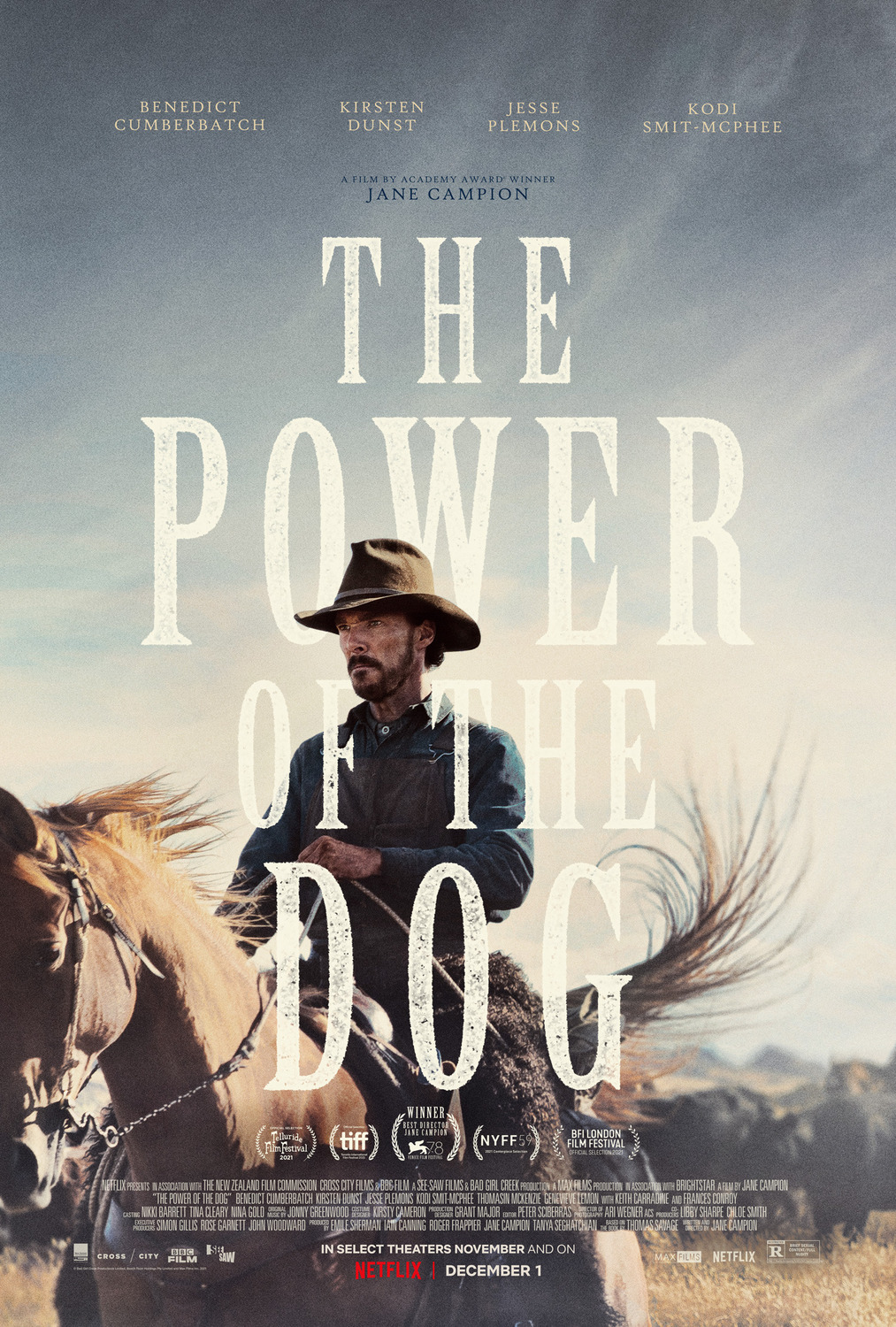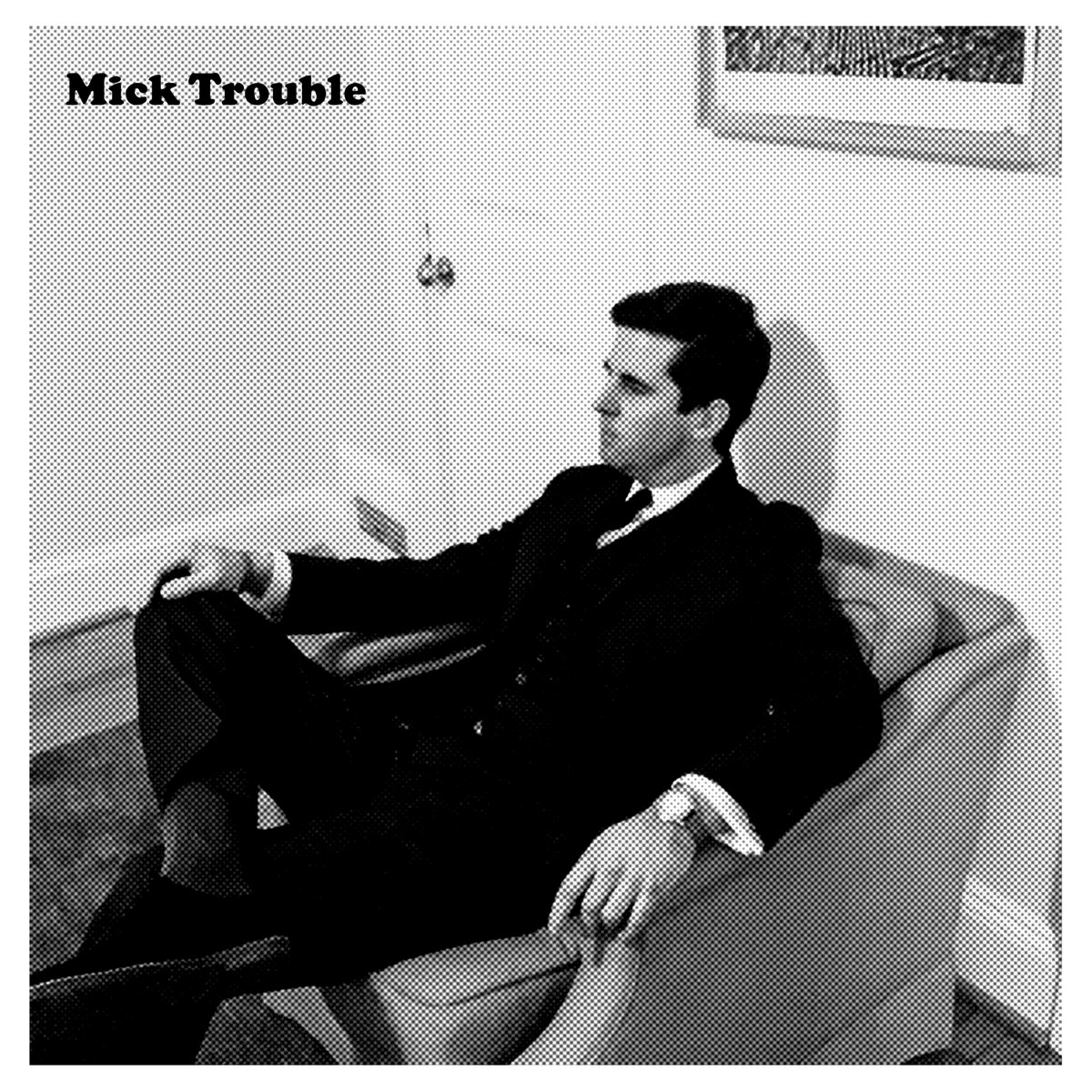Now Playing
Current DJ: Sarah Spencer
Delerium Incantation from Semantic Spaces (Nettwerk) Add to Collection
Requests? 773-DJ-SONGS or .(JavaScript must be enabled to view this email address)
 Welcome to The Fourth Wall, CHIRP's e-conversation on cinema. This week's subject is the 2021 film The Power of the Dog.
Welcome to The Fourth Wall, CHIRP's e-conversation on cinema. This week's subject is the 2021 film The Power of the Dog.
This edition is written by CHIRP Radio volunteers Kevin Fullam and Clarence Ewing.
Clarence Ewing:
In the opening scenes of Jane Campion’s 2021 Oscar-nominated film The Power of the Dog, the audience is treated to a familiar site in movie history: a good old-fashioned cattle drive. It’s 1925, and a group of herders leads a river of beef along the lonesome trail, nothing but blue skies and open scenery for miles. Not many Hollywood images get more American than that.
The group is led by two brothers, Phil (Benedict Cumberbatch) and George (Jesse Plemmons). Although the men under his command like and respect him, it’s obvious that Phil is a walking mix of tension and bile. If something annoys him, he’ll let that something know it, whether it’s his less-aggressive brother who he constantly insults and belittles, or the skinny, awkward-looking young man who serves the crew dinner one day at a hotel along the trail (Kodi Smit-McPhee), and who is the son of the establishment’s owner Rose (Kirsten Dunst).
Along the way, other names are mentioned: Old Lady and Old Gent Burbank. The Governor. Bronco Henry. The audience gets more details of these characters and how they relate to each other. Phil is a constant presence in everyone’s life, whether he’s physically there or not, and that fact drives the other characters’ actions and events forward.
Mick Trouble – It's Mick Trouble's Second LP (Emotional Response)

by Eddie Sayago
The Academy Awards, which honors all the artists who create cinema--despite the recent kerfuffle cutting airtime from various technical categories--sometimes recognizes some of the greatest artists who ever lived. And sometimes they don't.
These seven songs, all nominated for Best Original Song, represent both the movies they were featured in and bring a spotlight to the musicians behind them:
Music and Lyrics by Howard Ashman and Alan Menkel
Performed by Levi Stubbs
Years before briefly being the go-to team for creating music for Disney films, Howard Ashman and Alan Menkel were tasked for the music for Little Shop of Horrors, a off-Broadway musical that premiered in 1982, slowly becoming a cult hit.
I can’t imagine anyone else delivering both the gruff and sass required in “Mean Green Mother from Outer Space” than Levin Stubbs, especially with the lines “You better step aside/Better take a tip, boy/Want some good advice?/You better take it easy,/'Cause you're walkin' on thin ice.” (Stubbs is best known for being the lead singer of The Four Tops.)
Right after Little Shop of Horrors, the duo were invited to write music for The Little Mermaid, the film that launched Disney's Renaissance era. The music was a big factor in the success of the films the duo worked on, and would have continued beyond Beauty and the Beast and Aladdin.
Ashman died in 1991 from complications of AIDS, a few months before the release of Beauty and the Beast, which is his most accessible work as a lyricist. His finest work is "Mean Green Mother from Outer Space," a gem that continues to be belted out on stages around the globe four decades later.
Lost To: “Take My Breath Away” from Top Gun
Kaina – It Was A Home (City Slang)
by Eddie Sayago
There is a chance that you have come across a song (or two, or so many more) that you enjoy and did not realize that it's either been covered by someone else or is a cover itself. We hope that this series allows you to appreciate both the original and the covers they have inspired, and to seek out and enjoy new music in the process.
Here we take a look at one of Hank Williams’ most memorable songs and two different covers by two of the most influential male crooners America has ever produced.
Despite his short life (he died on New Year’s Day 1953 at age 29), Hank Williams accomplished more as a musician than most other artists who live twice as long.
Arguably America’s first country music superstar, Williams had written/co-written and recorded over 160 songs over the course of a decade, with 35 of them becoming Top 10 hits on the Country Charts (and 11 of them going to #1).
“Cold, Cold Heart” was actually a B-Side to a more upbeat single, “Dear John” (a very downer title, if one is familiar with “Dear John” letters/stories). “Cold, Cold Heart” is by far the more memorable of the two songs released on that record in February 1951, quickly becoming a #1 hit and becoming a popular song to cover by other artists.
Though the song could apply to any couple going through hardship, a line in the first verse, “A memory from your lonesome past keeps us so far apart”, references an abortion that Williams’ first wife, Audrey, had that may have been from an extramartial affair.
Hank also had affairs of his own, eventually divorcing Audrey to marry Billie Jean Horton–who later had an affair with Johnny Cash–shortly before his death in October 1952. Horton got her name from her next marriage, to singer Johnny Horton, whom she married the following September.